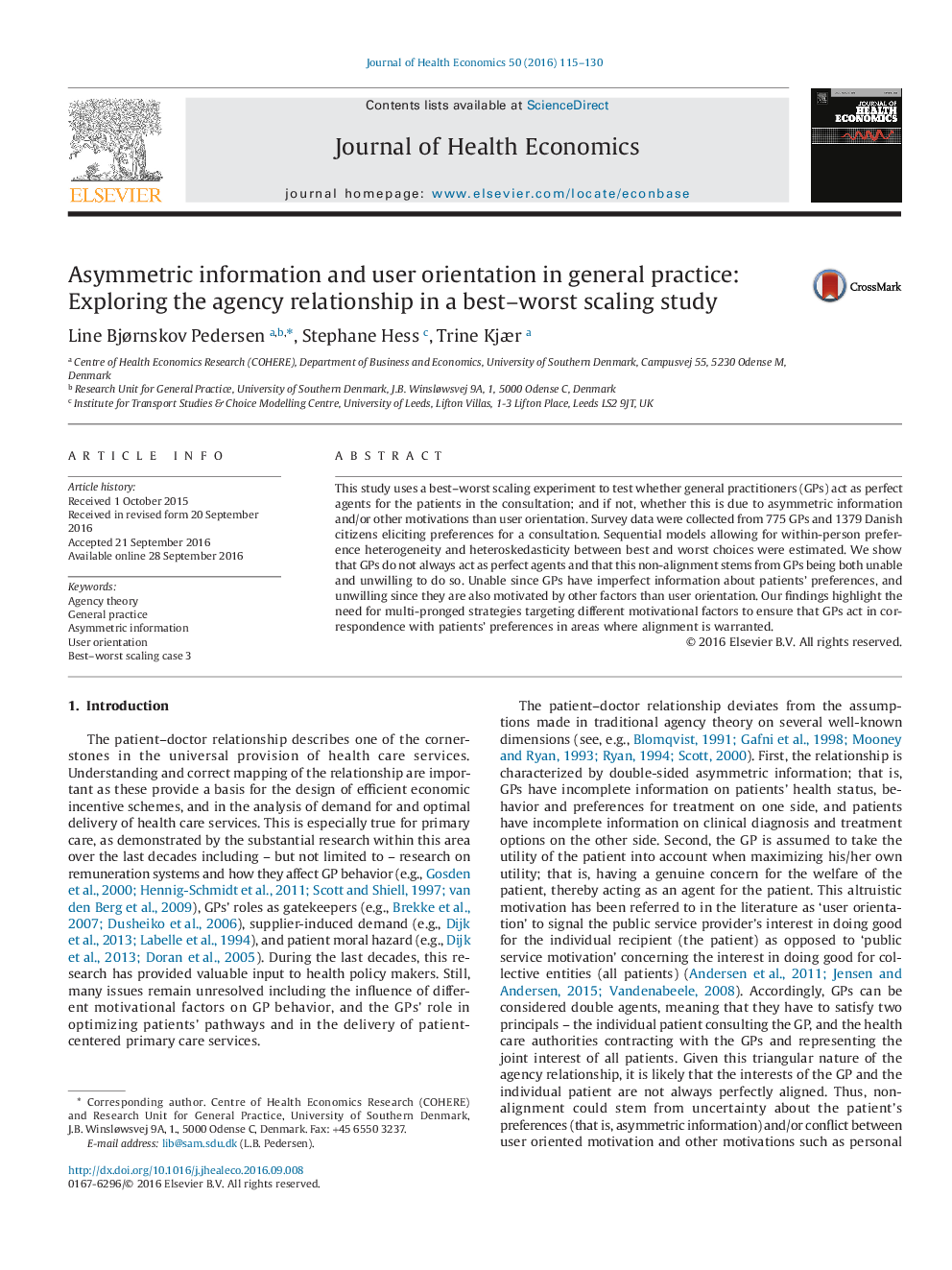| Article ID | Journal | Published Year | Pages | File Type |
|---|---|---|---|---|
| 5100802 | Journal of Health Economics | 2016 | 16 Pages |
Abstract
This study uses a best-worst scaling experiment to test whether general practitioners (GPs) act as perfect agents for the patients in the consultation; and if not, whether this is due to asymmetric information and/or other motivations than user orientation. Survey data were collected from 775 GPs and 1379 Danish citizens eliciting preferences for a consultation. Sequential models allowing for within-person preference heterogeneity and heteroskedasticity between best and worst choices were estimated. We show that GPs do not always act as perfect agents and that this non-alignment stems from GPs being both unable and unwilling to do so. Unable since GPs have imperfect information about patients' preferences, and unwilling since they are also motivated by other factors than user orientation. Our findings highlight the need for multi-pronged strategies targeting different motivational factors to ensure that GPs act in correspondence with patients' preferences in areas where alignment is warranted.
Related Topics
Health Sciences
Medicine and Dentistry
Public Health and Health Policy
Authors
Line Bjørnskov Pedersen, Stephane Hess, Trine Kjær,
